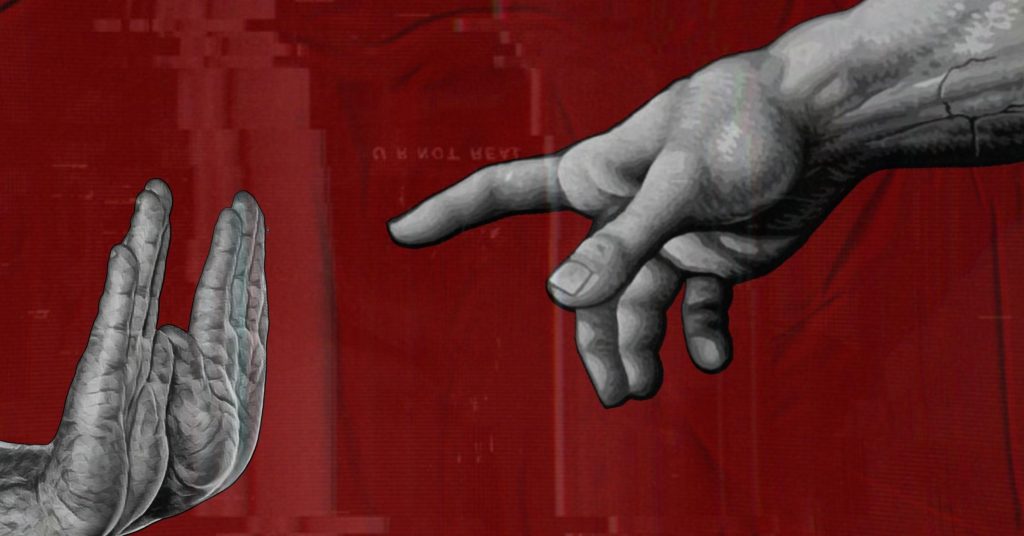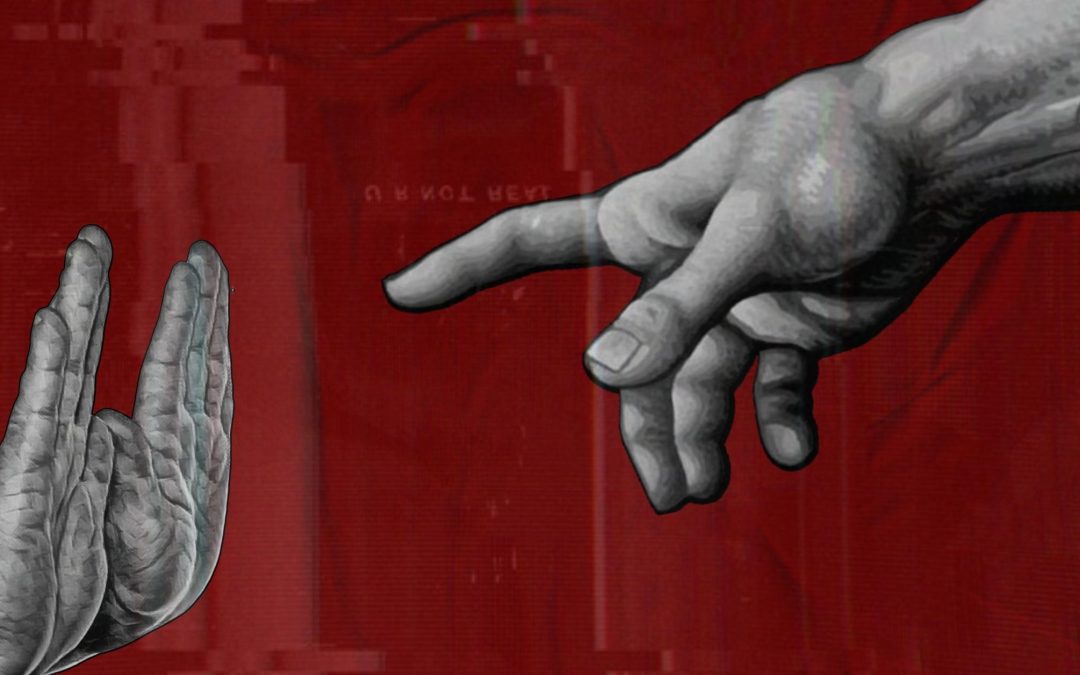Imagine a time in the not-too-distant future. Trying to compensate for a declining population, scientists use advanced technology to build a “race” of robots, giving them not only human appearance and abilities, but also increasing amounts of AI. Things work smoothly in the short run, as the robots’ nearly limitless energy for work transforms Earth into a near paradise. But the programmers, seeking to give their creation a chance at true relationship with their human masters, give the robots freedom of will, grafting it on to their ability to think independently. Chaos soon ensues, as the robots rebel and rise up against the human population…

This is standard fare, of course, in science fiction circles. Shows like Battlestar Galactica explored the philosophical issues surrounding this scenario, and play out possible expected, and some unexpected, outcomes. Let’s do the same from a Christian standpoint.
How can a good God send anyone to hell?
A major stumbling block for non-Christians, and for many Christians as well, is the doctrine of Hell. How, they ask, can an “all-good” God consign his creation to a place of torment? Don’t we have a right to unending life, lived as we wish? Talking about rights like this flows readily from the American temperament. As beneficiaries of a system of ordered liberty, resorting to courts to settle our grievances, we seem to easily slip into thinking that man is autonomous, a force onto himself, with the unfettered right to advance his desire for control.
But though we resist thinking about this notion, we are in fact created beings. We did nothing to bring ourselves into existence and the basic equipment with which we experience the world was given to us at birth. However much we wish it were different, our aging bodies and tired souls remind us that that this good Earth is simply a waystation in a much longer journey. However much we assert our independence, exercise intelligence, and demand our “right” to do what we want, if we are honest with ourselves, we must realize that whatever brought us into existence may intend to reckon with us for what we have done while here. This creator may require an accounting.
Are we like robots, pots, and planes?
Most people who think through the implications of our contingent nature eventually realize that whatever did create us retains the right to do what he will with the fruit of his labor. After all, no one condemns the potter when he smashes the pot that does not meet his wishes, or the painter that slashes a painting if she so chooses. In the scenario depicted above, we realize that the programmers would be within their rights to “unplug” or otherwise disable their creation. Having made them, they retain the right to dispose of them, whether that be by putting them to forced labor or by dismantling them for parts. There is no moral outcry when, for example, the Air Force cannibalizes broken planes for parts that keep other planes flying.
But when we move to the arena of man and his Creator, our bias leads us to a totally different conclusion. But we are different, aren’t we? We think, and reason, and have free will that allows us to plan, to dream, to set goals. We form relationships that are meaningful to us. And most importantly, we feel. Pain is a constant threat and everyday companion. Does this not give us the right to do what we want? Especially if we mean well and don’t want to “hurt” anyone? To be “good,” God must simply get out of our way and let us … what, be God?
Actually, He doesn’t. Nothing changes in this analysis when the creatures under consideration are human beings. Having formed us from nothing, God can do what he wants with us. In fact, it appears that in the natural order of things, God has established rules that we violate at our peril, so that what he wants for us can be seen not only in his Revelation, but in the natural law. What changed is our perspective. Our bias in wanting our way is what leads us to cry foul when God’s created order bumps up against our plans and desires. As in the Garden of Eden, modern man insists not on serving God, but on replacing him… or displacing him, at the very least. Insistent on having our way, we see God as a nuisance, or worse yet, the enemy. We shake our fist at him, insisting that he move out of our way, and that he justify himself to us.
We’re supposed to relate to God on His terms
Unlike the robot analogy, God does not fear us or where our freedom may take us. We present no threat to him. But that does not mean that he must accept us into his fellowship, for to do so would be inconsistent with his holy nature. So, he reveals himself to us in a way which, though substantial, is not overwhelming. By adhering to that balance, he provides enough evidence of his reality without overcoming our freedom to choose to ignore him. Most importantly, he provides a way for us to reunite with him, but on his terms. That many people will use this freedom to remain in rebellion is not something for which he must explain.
None of this is easy for us to fully comprehend or to accept. Set in our rebellion, without God taking the initiative, all would be lost. But when we insist that God must bend to our will, that our freedom to choose must be accepted by him despite his contrary view, well, then we are living outside the order which God has created. And in the end, he can – and will – do what he, in his wisdom, deems right.
Better for us to begin to see this clearly than to persist in the notion that we can imagine God out of existence. He may seem largely hidden to us, but he is there.
Recommended Resources Related to this Topic
Hell? The Truth about Eternity (MP3 Set), (DVD Set), and (Mp4 Download Set) by Dr. Frank Turek
Short Answers to Long Questions (DVD) and (mp4 Download) by Dr. Frank Turek
Was Jesus Intolerant? (DVD) and (Mp4 Download) by Dr. Frank Turek
____________________________________________________________________________________________________________________________________________________
Al Serrato earned his law degree from the University of California at Berkeley in 1985. He began his career as an FBI special agent before becoming a prosecutor in California, where he worked for 33 years. An introduction to CS Lewis’ works sparked his interest in Apologetics, which he has pursued for the past three decades. He got his start writing Apologetics with J. Warner Wallace and Pleaseconvinceme.com.


















Facebook Comments